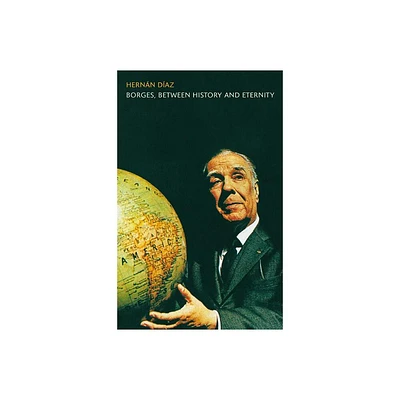Home
The Cinema of Wang Bing: Chinese Documentary between History and Labor
Loading Inventory...
Barnes and Noble
The Cinema of Wang Bing: Chinese Documentary between History and Labor
Current price: $45.00


Barnes and Noble
The Cinema of Wang Bing: Chinese Documentary between History and Labor
Current price: $45.00
Loading Inventory...
Size: OS
*Product Information may vary - to confirm product availability, pricing, and additional information please contact Barnes and Noble
An examination of the films of Chinese documentarian Wang Bing.
In
The Cinema of Wang Bing
, Bruno Lessard examines documentarian Wang Bing’s most important films. He focuses on the two obsessions at the heart of Wang’s oeuvrethe legacy of Maoist China in the present and the transformation of labor since China’s entry into the market economyand how the crucial figures of survivor and worker are represented on screen. Bruno Lessard argues that Wang is a minjian (grassroots) intellectual whose films document the impact of Mao’s Great Leap Forward on Chinese collective memory and register the repercussions of China’s turn to neoliberalism on workers in the post-Reform era. Bringing together Chinese documentary studies and China studies, Lessard shows how Wang’s practice reflects the minjian ethos when documenting the survivors of the Great Famine and those who have not benefitted from China’s neoliberal policiesfrom laid-off workers to migrant workers. The films discussed include some of Wang’s most celebrated works such as
West of the Tracks
and
Dead Souls
, as well as neglected documentaries such as
Coal Money
Bitter Money
.
In
The Cinema of Wang Bing
, Bruno Lessard examines documentarian Wang Bing’s most important films. He focuses on the two obsessions at the heart of Wang’s oeuvrethe legacy of Maoist China in the present and the transformation of labor since China’s entry into the market economyand how the crucial figures of survivor and worker are represented on screen. Bruno Lessard argues that Wang is a minjian (grassroots) intellectual whose films document the impact of Mao’s Great Leap Forward on Chinese collective memory and register the repercussions of China’s turn to neoliberalism on workers in the post-Reform era. Bringing together Chinese documentary studies and China studies, Lessard shows how Wang’s practice reflects the minjian ethos when documenting the survivors of the Great Famine and those who have not benefitted from China’s neoliberal policiesfrom laid-off workers to migrant workers. The films discussed include some of Wang’s most celebrated works such as
West of the Tracks
and
Dead Souls
, as well as neglected documentaries such as
Coal Money
Bitter Money
.

















